The most famous Greek swear word is malákas. But there are many more. Warning: This article contains foul language, in both Greek and English. Read (and use) at your discretion!

Modern Greek swear words
If you’re looking to add a bit of “color” to your Greek vocabulary, or just want to know how to swear like a Greek, then this guide is just for you!
I’m Vanessa from Athens, and although I don’t use too many of these Greek swear words, I had a lot of fun writing this guide.
Not to mention that, once again, I discovered that British English and American English are two entirely different languages! And they say that Greek is difficult….
By the way, a reader sent me this amazing coloring book on Amazon, where you will find swear words in English and Greek! What a genius idea.

So, Greeks are very creative when it comes to swear words and phrases. As you will see, many of them have to do with sex, genitals and bodily functions.
We can probably trace this back to Ancient Greece. Aristophanes, the great comedy writer, was well-known for his profane language. He used it alongside refined and sophisticated phrases, to make the audience laugh.
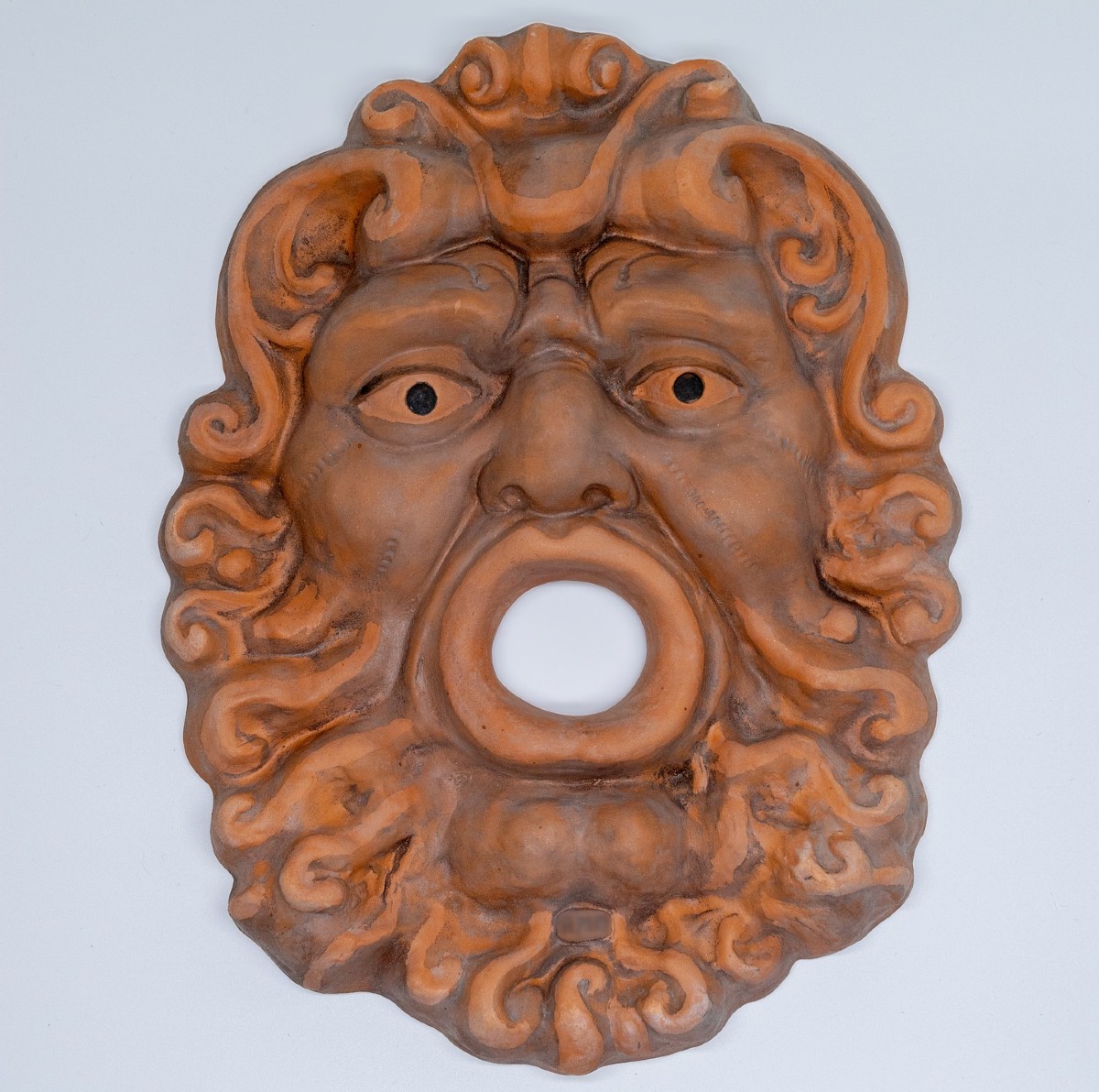
So, here are the top 20 modern Greek curse words and insults. I’ve included translations, pronunciations and some examples in real-life situations.
1. Malákas (Μαλάκας) – Jerk / Asshole
If you only know one Greek curse word, it’s probably the famous Greek malákas. Its literal translation is “wanker”, or “a man who masturbates”.
Technically, malákas is a curse word, similar to “jerk”, or “asshole”. However, it’s actually a really versatile and common word. You can use it as an insult, but also as a term of affection, similar to “bro”, “mate” or “dude”. Some people just use it for added emphasis.
When you are addressing someone, you need to drop the end -s. So, you would call someone maláka instead of malákas. If you are into grammar, this is because Greek has four cases: nominative, genitive, accusative and vocative.
Examples
A) You are crossing the street on foot, and the pedestrian traffic light is green. All of a sudden, a car driver speeds up and almost runs you over. You have every right to call them maláka, followed by a rude gesture for extra emphasis.
B) Let’s imagine this other context: you are inviting a friend to a party, but he / she says he’s got too much work to catch up with. You can say “Oh come on, maláka, it will be fun“.
Note: Even though the word is technically used for a guy, you will often hear women use it as well. Seriously, it can be part of every basic Greek conversation! And if you ever go to Malaysia, you’ll love this city 🙂

2. Malakía (Μαλακία) – Bullshit
The relevant noun to malákas is malakía. Literally translating to “masturbation”, its meaning is more similar to “bullshit”. You can also use it to indicate a mistake someone made, or something that went wrong.
Example: I made a malakía… I accidentally deleted everything from the USB stick. I hope I can retrieve it.
3. Gamóto (Γαμώτο) – Oh shit / Oh fuck / Damn / Dammit!
If you visit Greece, a word that you are very likely to hear is gamóto. Literally translating to “fuck it”, it is used to express anger, frustration or disappointment. It’s similar to “oh shit” or “damn” in English.
Example: Gamóto, I forgot my phone at the office.
Note: The word gamóto goes back to Ancient Greece. It comes from the verb γαμώ, which means “to get married”. These days, the same verb is the Greek equivalent of “having sex” – and it’s considered quite vulgar.
4. Áde gamísou (Άντε γαμήσου) – Fuck you
This is another all-time-classic Greek swear expression. It translates to “fuck you”, and is often used during a heated argument, or in anger.
Generally speaking, it’s not something you would want to say to your parents or your boss.
Example: If you are driving in Greece and cut someone off, they are very likely to shout áde gamísou to you, often followed by maláka.
Note: The word gamísou has the same root with the word gamóto. Besides those, there are numerous more expressions based on the verb γαμώ – just like in many other languages.
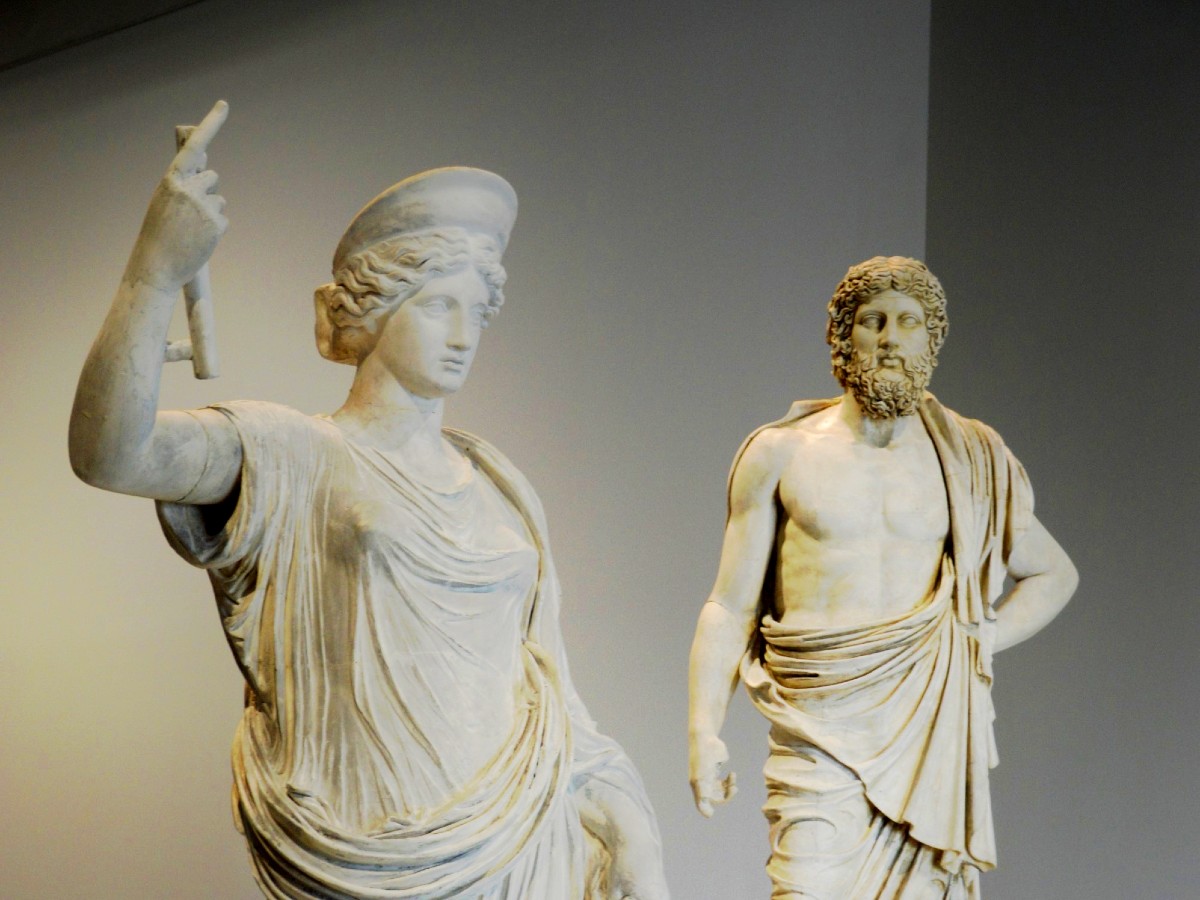
After all, don’t forget that Greek mythology is full of stories related to sex. And no, it wasn’t always consensual. For instance, the almighty God Zeus is well-known for taking whatever he wanted, any way he wanted… No wonder Hera was so jealous.
5. Ái sto diáolo (Άει στο διάολο) – Go to hell
This phrase literally translates to “go to the devil”. It’s maybe a little old-fashioned, and not as a strong curse phrase as the previous expression.
Yet, considering the cultural importance of religion in Greece, Ái sto diáolo is still considered rude.
Related fact: In Greek it is illegal, and therefore punishable by law, to use curse phrases against God, Jesus or the Virgin. Regardless, there are several such offensive expressions. You are likely to hear many of them if you go to watch a football match.
6. Reh (Ρε) – For extra rudeness
The short Greek slang word Reh is often added to the beginning or the end of a sentence to add an element of rudeness, or aggression. It’s not exactly a vulgar word, but it’s definitely impolite.
Example: What do you want reh maláka?
The word Reh comes from the ancient Greek word Μωρός > Μωρέ, which means “stupid”. In fact, this is where the English word “moron” comes from. So, technically, it is an insult – though many Greeks are unaware of that.
Fun fact: The Greek word for “baby”, μωρό, comes from the exact same word.
7. Skatá (Σκατά ) – Shit
This is one of the easiest Greek swear words to remember and pronounce, and it means “shit”.
You can use it when something goes wrong instead of gamóto as is less vulgar. Still, it’s an impolite word that you want to avoid when talking to people you don’t know very well.
Example: Skatá, I got locked out of my hotel room.
8. Hése mas (Χέσε μας) – Bite me / Fuck off
Literally translating to “shit on us”, this somewhat funny expression is the equivalent of “bite me” in American slang, or the more offensive “fuck off”. It is used to express annoyance, or anger.
Example:
- You are never going to make it in time!
- Hése mas, I’m sure I’ll manage!
9. Héstika (Χέστηκα) – I don’t give a shit / I don’t care
This word, which comes from the same verb as hése mas, literally means “I shat myself”. Amusingly, it best translates to “I don’t give a shit”, and is used to express “I don’t care”.
Example:
- Don’t go out, it’s raining.
- Héstika, I’ll take an umbrella.
10. Kólos (Κώλος) – Ass
The meaning of the word kólos is “ass”. As in many languages around the world, it’s an impolite word. Greeks often add kólos to another word as a first component, to imply something bad / in a bad state.
Example: A common word to describe bad weather is kolókeros – Ass weather.
Fun fact: This is where the word “colon” comes from.
11. Arhídeea (Αρχίδια) – Balls / Bollocks
This part of the male anatomy is a very common and versatile Greek swear word. You can use it in several circumstances, for instance to indicate a bad situation, or to insult someone.
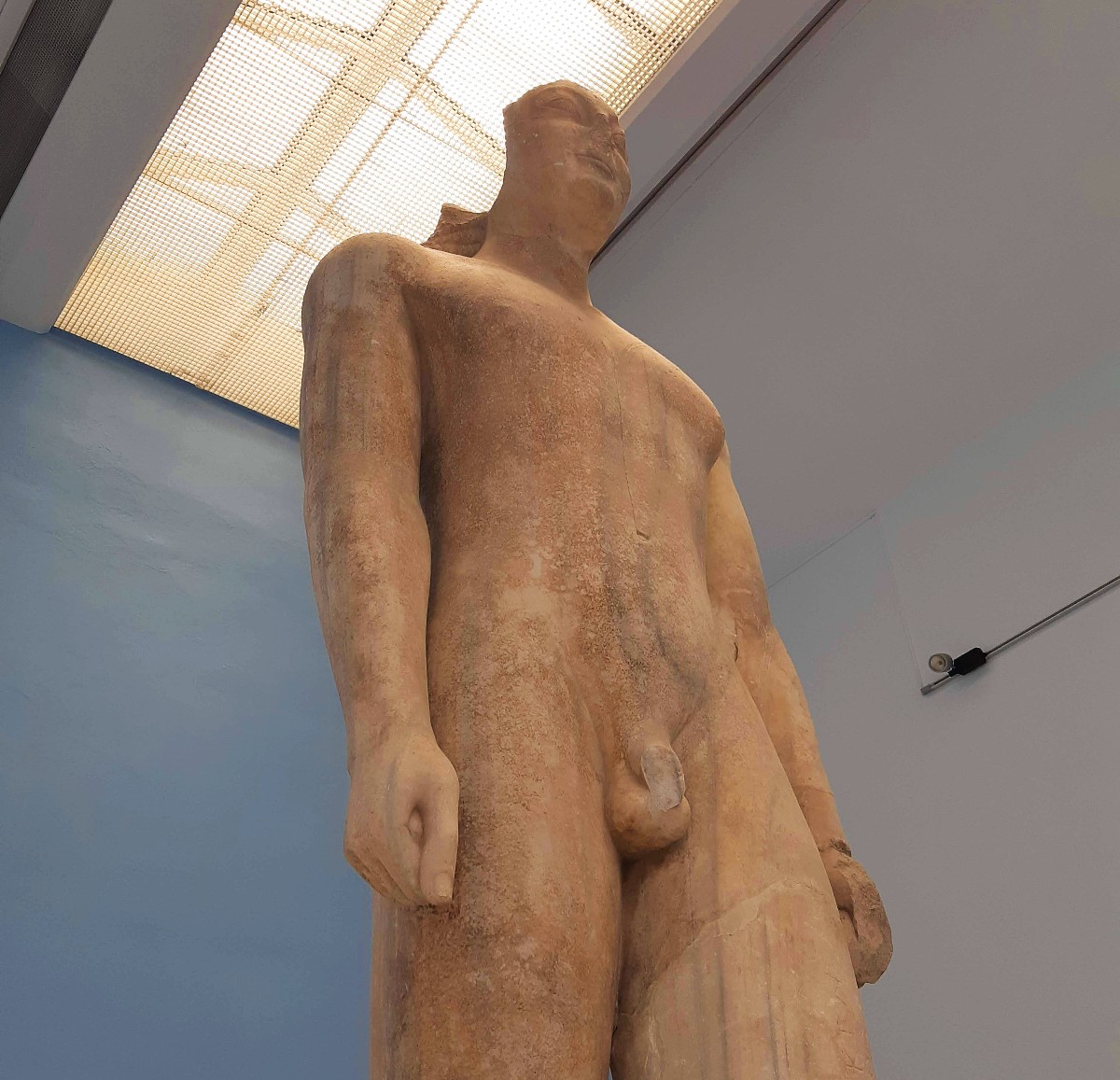
There are several expressions using the word arhídeea, or its singular form, arhídee. If, like many foreigners, you find it difficult to pronounce, it’s best to find another Greek word to express your frustration. Otherwise, you are running the risk to sound amusing rather than angry.
Examples
A) When used as a standalone expression, the word indicates a failure, or something that didn’t go to plan.
- How did your exam go?
- Arhídeea, I didn’t do well.
B) A common expression is “Páreh t’arhídeea mou”. It literally translates to “Take my balls”, but it’s closer to “Suck my dick”.
C) You can use it as a curse word. It’s similar to malákas but a bit stronger. Again, if a car driver almost runs into you, you could comfortably say “reh arhídee, look where you are going”!
12. Papária (Παπάρια) – Balls / Testicles
Another word for the same part of the male anatomy is papária. It’s maybe a little less offensive than arhídeea, but it’s still a word you should avoid using in most circumstances.
It’s most commonly used to indicate failure, or something that didn’t go to plan. Bonus: It’s easier to pronounce than arhídeea.
Example:
- How did your exam go?
- Papária, I think I’ve failed.
13. Pútsos (Πούτσος) – Cock / Dick
Oh dear. Where do we start and end with the words that are used to describe the part of the male anatomy that most men seem to be fixated on.
There are so many Greek slang words to describe a penis. One of the most common words is pútsos, which is a masculine word. Somewhat ironically, it has a feminine form as well, pútsa.
Other widely used synonyms are kavlí and psolí. Not to be confused with psomí, which means “bread”. (I’ve got an expat friend who once asked for a kilo of psolí at the bakery. Please don’t make the same mistake).
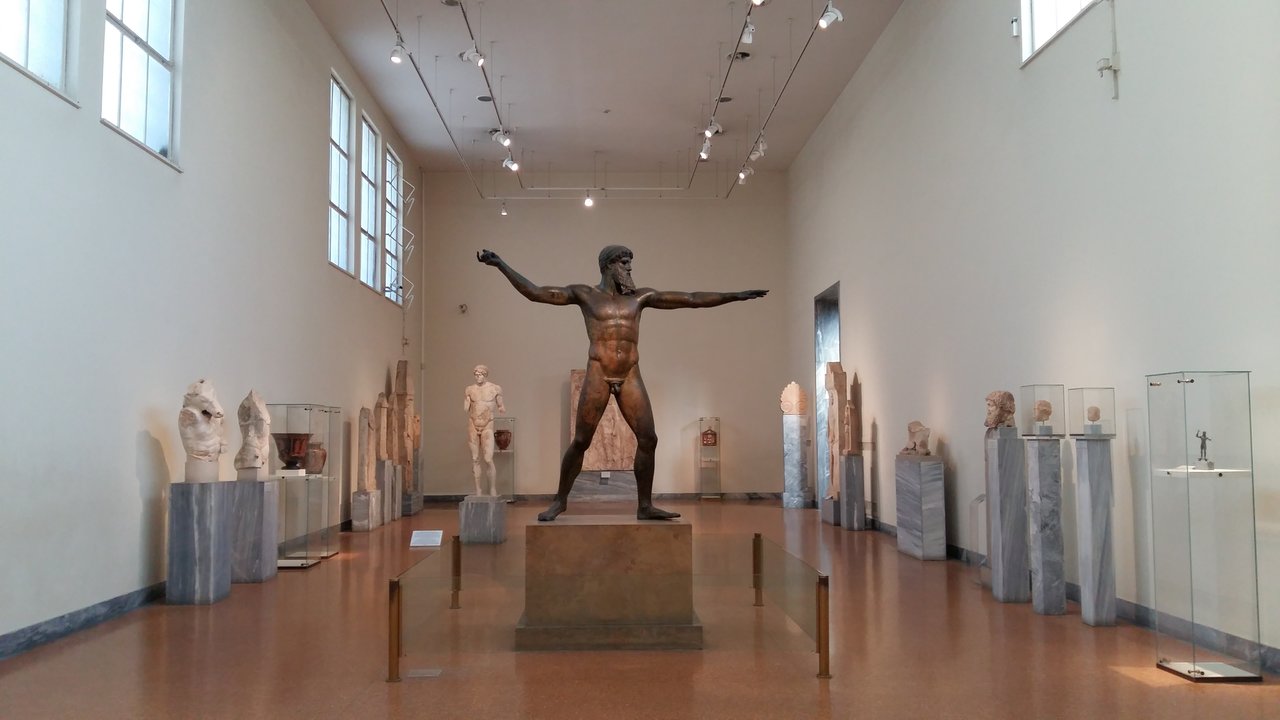
Incidentally… you may have noticed that Ancient Greek statues are not exactly very well-endowed. In Ancient Greece, a large penis was considered a sign of someone being boorish, unrefined and lacking self-control, in other words a barbarian.
Note: The English word “cocksucker” doesn’t really have an equivalent in Greek.
14. Pústis (Πούστης) – Fag / faggot / homo
This politically incorrect word is used to describe a homosexual male in a derogatory manner. It’s similar to the English word “faggot”, “fag” or “homo”.
Sometimes, you may hear the word pústis being used between male friends, as a sign of intimacy and affection. Still, you won’t hear it as often as malákas.
The expression reh pústi is often used to express anger and frustration, often followed by the word mou.
Example: Reh pústi mou, the internet is off again!
15. Putána (Πουτάνα) – Bitch / Whore
This word, which comes from the Italian puttana, is one of the most versatile curse words used in the Greek language. Originally, the word is used to indicate a female prostitute, or a wife who is not faithful to her husband.
By extension, it is often used as a vulgar / derogatory term for a promiscuous woman. Note that there is no equivalent swear word in Greek for a man who has many partners…
Finally, putána can also indicate an evil woman, or also a smart, cunning woman, but still in a derogatory manner. And there are many more meanings! A common slang expression is Ginete tis putánas > It is very crowded.
Note: The word putána is not only vulgar and offensive, but also sexist. Yes, Greeks are still rather puritan…
16. Burdélo (Μπουρδέλο) – Brothel
The literal meaning of the word burdélo is a brothel. And while “brothel” is not really a curse word, Greeks use the word burdélo to indicate a messed-up situation, or a very untidy room / house.
Example: I’ve been waiting for a half hour to talk to someone, and the lines are still busy! It’s such a burdélo!
17. Mouní (Μουνί) – Pussy / Cunt
In Greek, mouní is a vulgar way to describe the female vulva. It’s also a super vulgar word to describe an attractive woman. Remember the macho culture in Greece.
Unlike in English, you can’t use mouní to refer to a person who is a pussy, as in too scared to do something. You can use it, however, as a derogatory term for a man, as in “cunt”. It’s much worse than malákas.
There are numerous composite words and expressions with the word mouní. One that you might come across is ta ekanes mouní, best translated as “you made a mess”.

18. Kariólis (Καριόλης) – Douche / Mofo
The word kariólis is probably one of the most offensive Greek words to use. We could best translate it as douche or mofo. The female version, karióla, is used to describe a prostitute, and by extension a woman with low morals.
Example: Look at the way this kariólis is driving!!
Fun fact: The word comes from the Italian word carriola, which roughly translates to a low bed, or a wheelbarrow.
19. Ilíthios (Ηλίθιος) – Idiot
This word is not nearly as vulgar as the others mentioned here so far. However, it’s an interesting word to analyze.
The English word “idiot” comes from the word ιδιώτης, which was used in Greece in ancient times. This word indicated a person who was not interested in common affairs and public life, and was considered to be an insult.
In Greek, the word ilíthios is an adjective, and has three genders. So, you would call a man ilíthios, and a woman ilíthia.
20. Vlákas (Βλάκας) – Stupid
Hardly a swear word these days, the word vlákas is a noun indicating a stupid person.
Interestingly, it rhymes with the word malákas, so it’s a good alternative, as it’s not as vulgar. This also comes from an ancient word, βλάξ.
FAQs about Greek bad words
Here are some answers to FAQs:
What is a Greek swear word?
The most famous Greek curse word is malákas, wanker.
What is héstika Greek?
This rude Greek expression best translates to I don’t care – but it literally I shat myself.
What does re mean in Greece?
Re, or reh, is a Greek slang word used for emphasis. It comes from the ancient Greek word μωρός > moron.
What does vláka mean in Greek?
In Greek, the word vlákas means stupid. These days, it’s not a very strong swear word.
Does maláka mean friend?
The Greek word maláka is technically rude, and means a wanker. However, it is often used between close friends. In this case, its meaning is dude, or mate.
More guides about the Greek language and culture
Apart from the above words, there are literally hundreds more that you can use to offend someone in Greek. Many of them are sexist, racist, homophobic, shameful, or just over the top. Depending on where you are from, you may find them very politically incorrect. I certainly do – to be honest, I don’t use many of the above words either.
If you prefer to learn Greek vocabulary that won’t offend anyone, have a look at these other articles:
- The Greek alphabet and 20 Greek words
- More useful Greek words and basic phrases
- English words with Greek roots
And here are a few more articles on Greek culture:

Hi! I’m Vanessa from Athens. I hope you had fun reading this guide! Follow me on my social media:
- Facebook page and very active Facebook group
- Amazon
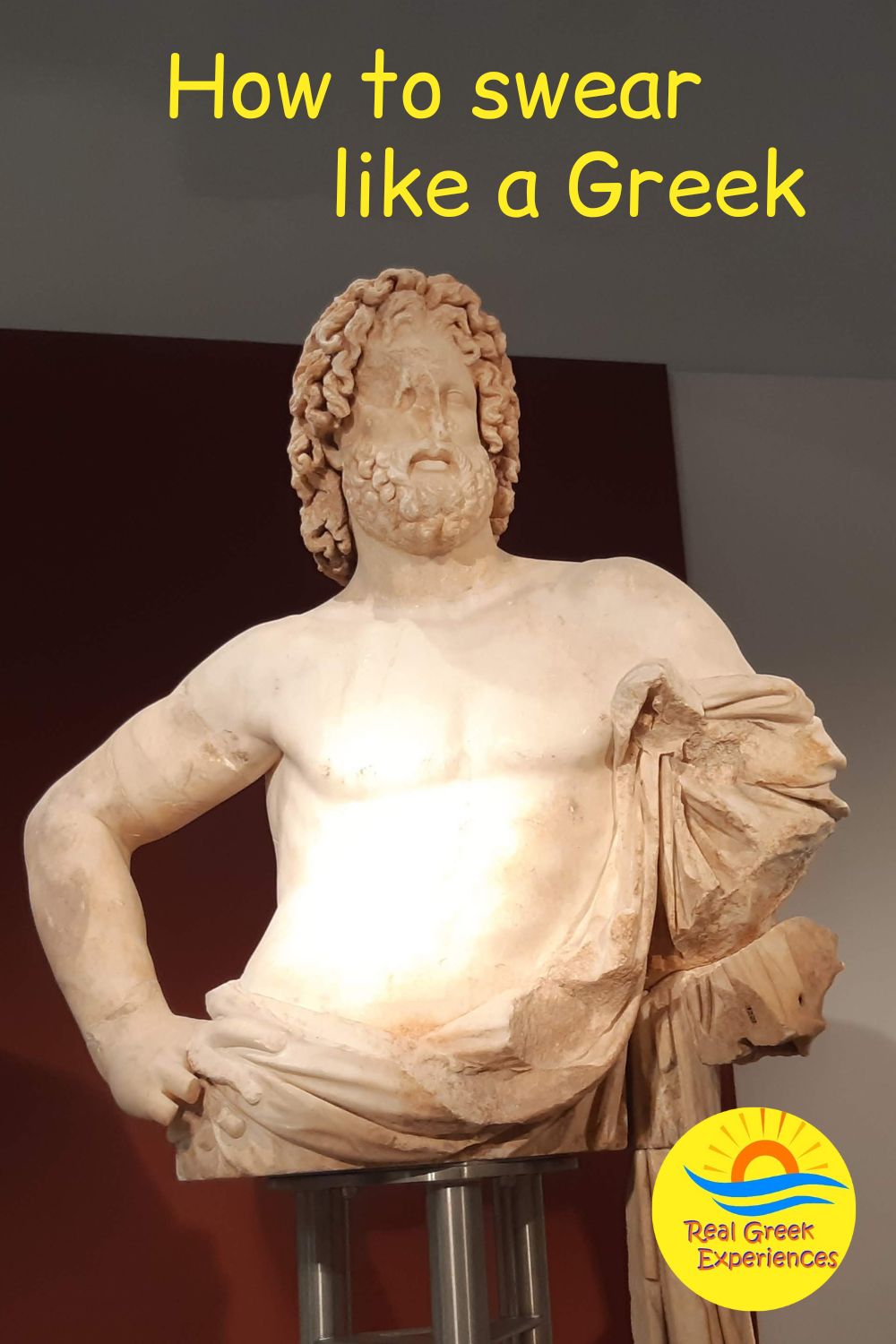

I think the biggest one is missing you. I believe it is something like Gamoto kera tomou mou gamo..very very rare someone to tell that one. I dont remember quite well and even by translation it is not quite but it goes something like “I fuck the bull from the horns”. besside that..you are abssolutely correct 😉
Haha you are right, I think I should add this to the article 😀
I believe you missed out “flowers around my dick”, but apart from that, perfect! Eucharisto!
Hah yes I did. It’s not as common as most of the others but I agree, it’s super funny 😀 😀
I’m going to pick up my hire car, for some driving in Corfu, tomorrow, so I’ll be needing this list. Thankyou!
Best comment ever! Hope it goes well 😀
Speaking as an honorary Australian Greek 🫣 … it’s hard to put into words, but the other way of emphasising some swear words is with the gesture of the open hand pointing to and located close to the … well it’s mentioned so many times in your guide all readers should be able to guess where!! Great article, thanks 😊
Hahah yeah 🙂 I was thinking to make a video with rude Greek gestures but I’m not sure it will go down very well lol!
I lived in Cyprus for ten years .. your article makes me smile, fun memories of my Greek Cypriot friends..Praxoula my barmaid mate called her husbands mistress Vromyaarri with true venom..top article thanks
my greek friends in high school taught me “ti kanis, reh” meant “how are you, man (or bro)”. I guess they were making a fool of me.
No, the word “reh” isn’t meant to be overly offensive – though you wouldn’t want to address people like e.g. your boss with “reh”. How are you man, or bro, is pretty accurate.
I learned several swear words from my Cypriot brother from another mother.
My favourite is (I don’t know how to spell it but I can say it🤣)
Sta’achithkiamo gamoto shitisu
You name is on my balls and while it’s there, I give it to you up the a$$
I’ve ever watched a video where a greek man laughing and saying “acu malaka”. What does it mean?
Akou is the Greek word for “listen” or “hear” 🙂 So, it’s similar to “listen mate”